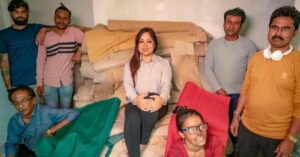Jodhpur Woman Helps 15000 More Sell Their Traditional Embroidery to Germany, Japan
Lata Kachhawaha, who arrived in Barmer district in Rajasthan in 1985, works with Sure NGO to empower women of the Meghwal community to earn a living through Kashidakari, a traditional form of embroidery.
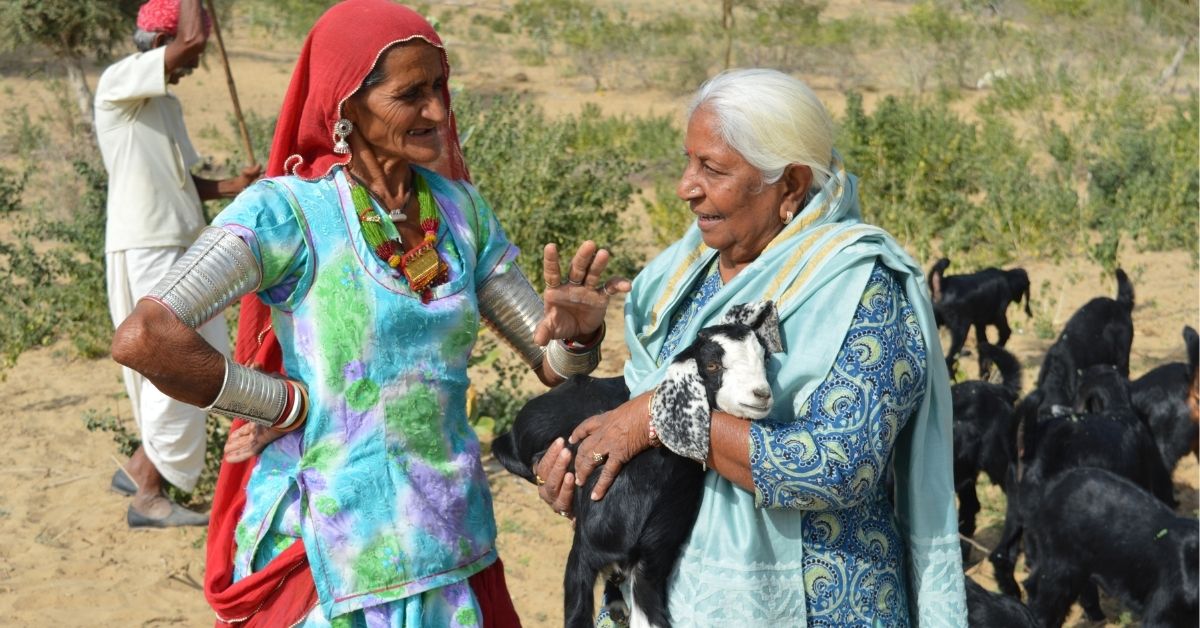
Owing to the exodus post the Indo-Pakistan wars of 1965 and 1971, several members of the Meghwal community settled in India in parts of Rajasthan, Maharashtra, Gujarat and Madhya Pradesh. In particular, some of those who came after 1971 settled in Rajasthan’s Barmer district, including Chohtan, a town in the area. The community was reeling from the displacement and facing financial difficulties due to limited work opportunities. The women, in particular, suffered owing to these pre-existing conditions, as well as societal norms which did not allow them to step out of their homes and left them solely dependent on their husbands.
The conditions in Barmer were equally despicable at the time. Lata Kachhawaha, a social worker with Society to Uplift Rural Economy (SURE), recalls, “The district’s climatic conditions left it riddled with droughts and limited farming choices. It’s also very remote, so transportation and communication were a challenge as well. The biggest issue was water shortage. The women were suffering the most.”
Preserve and protect
Lata had arrived in Barmer in 1985, when she was only 22, shortly after her mother’s demise. “My elder brother brought me here because I was looking for a change,” she tells The Better India, “I’m originally from Jodhpur, and had always been involved in social work. I met Shree Magraj Jain, who was the founder of Sure and was instantly inspired by the work he was doing.”
The women of Rajasthan’s Meghwal community are pioneers of kashidakari, a kind of embroidery used to decorate shawls, handkerchiefs, bed covers, cushions, and bags, among a host of other items. The work would earlier remain within the families, and be used to give as dowry, decorate their homes or as gifts to other family members.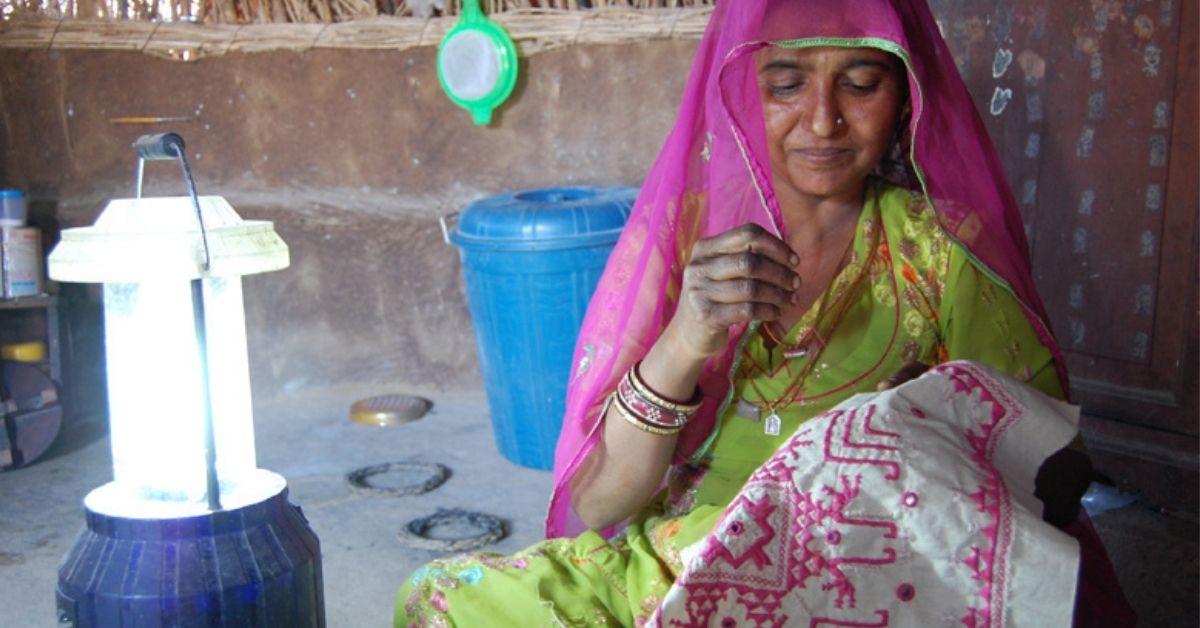
When the community settled here after the war, raising the next generation became increasingly hard, owing to the deplorable conditions of the district. A few merchants acted as middlemen to sell kashidakari items in the market, but the families would receive very little income in return, often not more than Rs 200. That’s when, through Sure, Lata came to the village. “We saw how men would have to leave the town to find work in other cities or states, leaving the women and elderly behind. The women would become burdened by the responsibilities of caring for the house by themselves, and were left with little agency,” Lata says.
She wanted to preserve and promote kashidakari, while ensuring that these women attain financial emancipation. The detailed and intricate designs that they were making had been passed down from grandmothers and even great-grandmothers, and the women needed to be compensated for the heavy work they were putting in recreating them. The programme began with 224 Pak-oustee women in the town. In 1994, Lata joined hands with designers from National Institute of Design, National Institute of Fashion Technology (NIFT) and Dastkar to hold workshops and develop over 250 designs in accordance with the fashion trends of the time.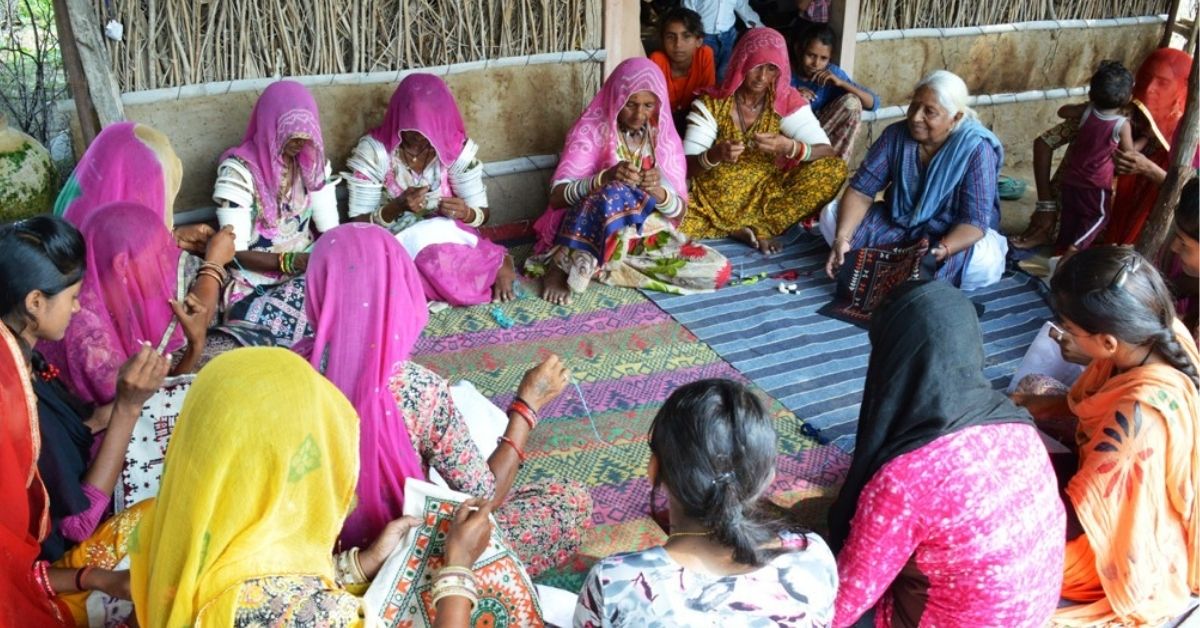
“We made a group with the women wherein they could track the number of pieces they were making and how much they were earning in return. It was to familiarise them with being able to tell how many hours they were putting in and assessing if the compensation they were receiving was adequate. They would price the products themselves based on the cost of raw material, shipping, storage, etc,” Lata says. Partnerships were made with NABARD and SIDBI to further the reach of these artisans.
Respite for war-hit women
The women were taught about entrepreneurship, told about concepts including breaking even, how to tally balance sheets, what are profits and losses, among others. “We had to explain how they should make quality products. We taught them by giving examples of cooking halwa, and how the tastier it is, the better the quality,” she says. In 1995, Sure tied up with the Ministry of Textile to further market and promote the women’s kashidakari work.
Over the years, exhibitions have been held in various parts of India, as well as in countries such as Germany, Japan, Singapore and Sri Lanka. Over 15,000 such women have been helped through embroidery. Brands such as Fabindia, Ikea, and Rangsutra get much of their material from the women of the Meghwal community in Barmer. In addition, around 40,000 Pakistani refugee women have been enabled through animal husbandry and agriculture. “Generations of women are involved in this work, and today the daughters of these households are both earning as well as being able to study,” she says, adding that the women earn up to Rs 5,000 a month.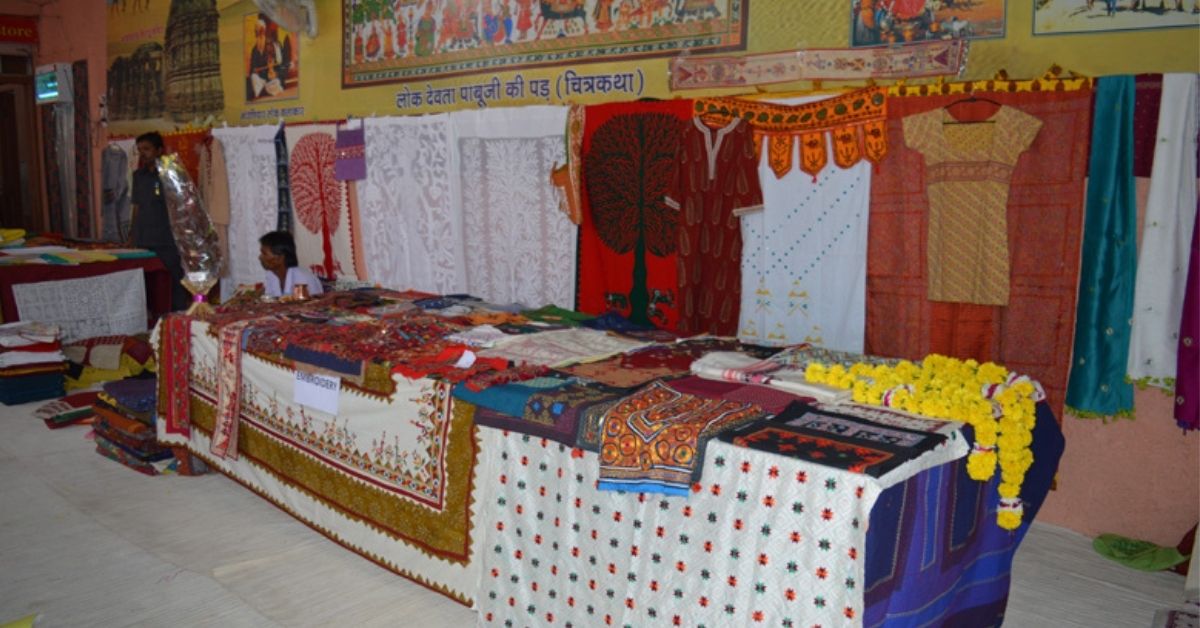
One such woman is 21-year-old Leela. She lives in Barmer with her grandmother and mother, while her father works in the handicraft business in Jodhpur. Her dadi settled in Barmer after the war in 1971. “Dadi tells me things have really changed since Lata ji came. She was always skilled in kashidakari, but was never earning from it. After Lata ji started working with us, things improved, and all three of us are now involved in the art. Our family’s sustenance has become a lot easier, and we’re not just dependent on my father,” she tells The Better India. Leela is in her final year of MBA.
A life-long lesson
Lata says the road to success has been riddled with potholes. “Helping these women earn meant that we would have to ask them to step out of their homes. We faced massive challenges in that, because it was strictly against what was allowed at the time. The community was averse to outsiders, and thought that women who come from other areas try to talk and engage with the Meghwal women were corrupting the latter. We had to work on building trust and forming our own relationships with them. We lived with them, ate with them, participated in their festivities, and tried our past to make them feel like we were part of the community. We’ve also had to keep up with the changing trends of the time to ensure the women can keep earning. The village was also facing acute water shortage, which meant that women would spend hours travelling long distances to fetch water, and not have time to work. We installed facilities in each household so they would have supply for 7-8 days at a stretch, but the problem has not fully been eradicated,” she says.
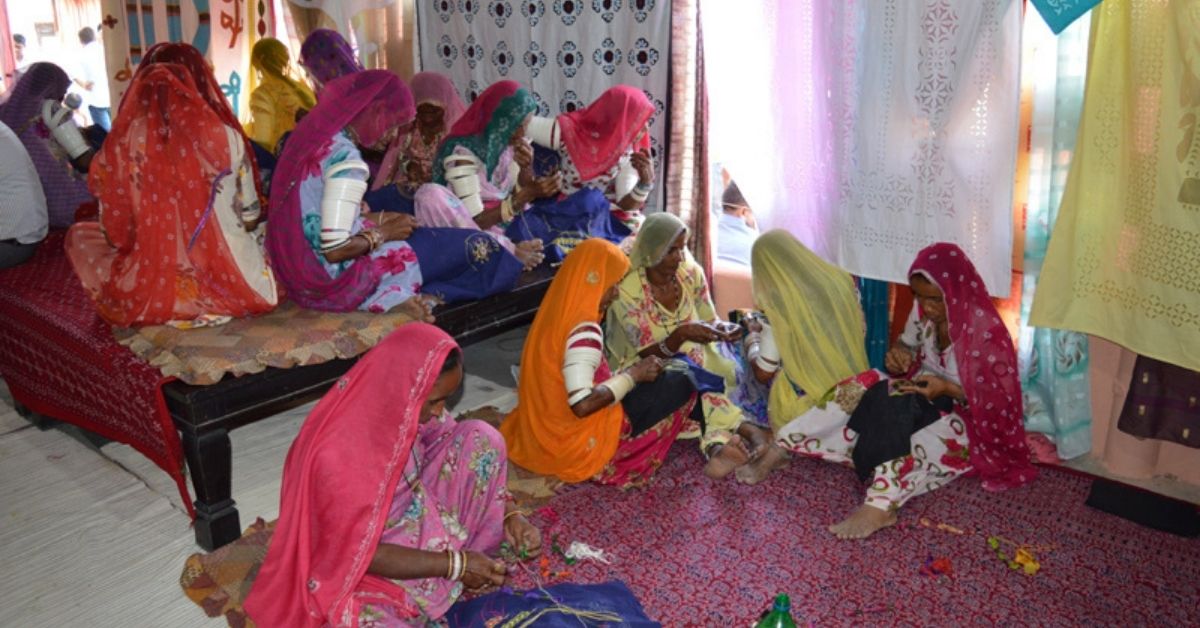
She adds, “Earlier, there were no cars or such facilities to travel, so remote areas could only be accessed via foot or on camels. Taking pregnant women to hospitals was a task, and often, only either the child or the mother would survive. We trained birth attendants for that, and how to refer high-risk cases to hospitals.”
“I wanted to ensure that other than just empowering them with work, we were addressing their holistic needs as well. Over 40 years, we have worked to provide them sanitation, sexual health awareness, education for their children, water security, taught them sustainable agriculture, and advocated for their food entitlement,” she says.
For her work, Lata was recognised by the Government of Switzerland and felicitated with the International Prize for Women Creativity in Rural Areas, as well as the Mahila Shakti Award and Senior Citizens Service Award by the Rajasthan government. “These awards have only pushed me to continue what I was doing, with renewed hope that my work has made a difference. I always tell the women that it’s because of them that I have received these awards,” she says.
Lata says her learnings have come from her mother. “She would always tell me that while society has many ways to dictate what a woman should or should not do, I had to remain focussed enough to carve my own path. She encouraged me to be educated, and I finished my postgraduate degree in law before coming to Barmer. Her words have inspired me to ensure that other girls had the opportunity to attain their dreams,” she says. The same teachings have inspired Lata’s 40-year-old journey in making sure that generations of Meghwal women in Barmer don’t become eventual casualties of war.
Edited by Yoshita Rao
This story made me
- 97
- 121
- 89
- 167
Tell Us More
We bring stories straight from the heart of India, to inspire millions and create a wave of impact. Our positive movement is growing bigger everyday, and we would love for you to join it.
Please contribute whatever you can, every little penny helps our team in bringing you more stories that support dreams and spread hope.







